Learn to capture Beatrix Potter’s animated painting style with Matthew Jeanes’ playful homage to the great British Illustrator

Having illustrated characters as the main part of my career for many years, I’ve recreated classic brands including Winnie the Pooh, The Muppets and Beatrix Potter images. Part of my job was to take characters and revise their look for whatever product was needed (greeting cards, games or clothing). Each poses their own challenges but once you’ve worked them out, they are a joy to do.
If we take Beatrix Potter, the style is presented as a delicate watercolour with a sepia line, drawn with a dip pen or quill. The paintings were incredibly small with meticulous attention to detail. Key to her genius were her sketchbooks and the notes of her country surroundings. When you look into her work, you see a fairly limited colour palette and a style that grows in confidence with her advancing years. The line work for the monotone illustrations is particularly lovely and that line is applied to the watercolours. Looking at her originals and the delicacy of colour, I imagine the paper was quite fine as the colour hasn’t bled out and the line work is sharp, something you won’t get from a NOT or Rough paper.
In this piece, I attempt to create an homage to Beatrix Potter. To start, I look at my surroundings and pets and try to imagine them as characters in my own story. I take my dog (Poppy) and turn her into ‘Salty Bob and his Dog Tails (from the sea)’. As this is giving the impression of an ‘adventure’ I add in an audience for the story in the form of a mouse called Mr Tamworth Teal (suitably ‘pottery!’). With the scene set, it’s time to begin.
この記事は Artists & Illustrators の September 2016 版に掲載されています。
7 日間の Magzter GOLD 無料トライアルを開始して、何千もの厳選されたプレミアム ストーリー、9,000 以上の雑誌や新聞にアクセスしてください。
すでに購読者です ? サインイン
この記事は Artists & Illustrators の September 2016 版に掲載されています。
7 日間の Magzter GOLD 無料トライアルを開始して、何千もの厳選されたプレミアム ストーリー、9,000 以上の雑誌や新聞にアクセスしてください。
すでに購読者です? サインイン

Still life IN 3 HOURS
Former BP Portrait Award runner-up FELICIA FORTE guides you through a simple, structured approach to painting alla prima that tackles dark, average and light colours in turn
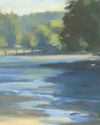
Movement in composition
Through an analysis of three masterworks, landscape painter and noted author MITCHELL ALBALA shows how you can animate landscape composition with movement
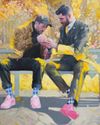
Shane Berkery
The Irish-Japanese artist talks to REBECCA BRADBURY about the innovative concepts and original colour combinations he brings to his figurative oil paintings from his Dublin garden studio

The Working Artist
Something old, something new... Our columnist LAURA BOSWELL has expert advice for balancing fresh ideas with completing half-finished work
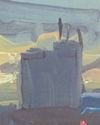
Washes AND GLAZES
Art Academy’s ROB PEPPER introduces an in-depth guide to incorporating various techniques into your next masterpiece. Artwork by STAN MILLER, CHRIS ROBINSON and MICHELE ILLING
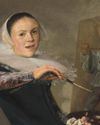
Hands
LAURA SMITH continues her new four-part series, which encourages you to draw elements of old master paintings, and this month’s focus is on capturing hands

Vincent van Gogh
To celebrate The Courtauld’s forthcoming landmark display of the troubled Dutch master’s self-portraits, STEVE PILL looks at the stories behind 10 of the most dramatic works on display

BRING THE drama
Join international watercolour maestro ALVARO CASTAGNET in London’s West End to paint a dramatic street scene
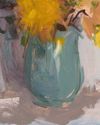
Serena Rowe
The Scottish painter tells STEVE PILL why time is precious, why emotional responses to colour are useful, and how she finds focus every day with the help of her studio wall

Bill Jacklin
Chatting over Zoom as he recovers from appendicitis, the Royal Academician tells STEVE PILL about classic scrapes in New York and his recent experiments with illustration